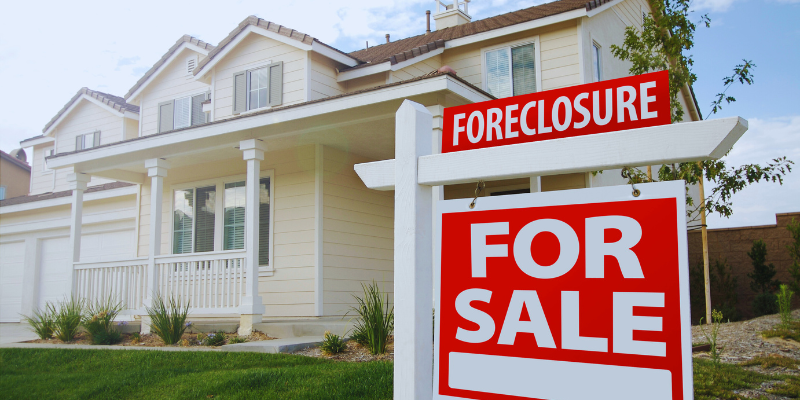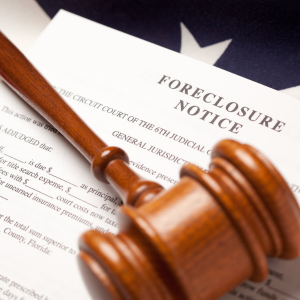
In Hawaii, facing foreclosure can be scary, but knowing your choices is the first thing that will help you get back in charge. If you know what to do and have the right information, you can sell your house even though it is in foreclosure. This guide covers essential tips on Hawaii’s foreclosure laws, mortgage insights, and practical steps to successfully sell your home before the process is complete.
Find out how being proactive can help you avoid more financial trouble, keep your credit in good shape, and move on with confidence, even if the foreclosure process has already started.
Key Highlights
- Hawaii foreclosures proceed through judicial and nonjudicial processes, each with distinct timelines and homeowner rights affecting your ability to sell.
- At every step of the Hawaii foreclosure process, there are strict legal deadlines that must be met. Acting quickly is essential to keep sales options open.
- State-specific foreclosure laws determine how and when you can sell your property, so understanding these regulations is essential.
- Talking to your banker and talking to experts on foreclosure can help slow down the process and make it easier to sell your home on your own.
- Partnering with experienced legal and real estate professionals increases your chances of a successful sale before foreclosure is finalized.
Understanding Foreclosure in Hawaii: An Overview
If you’ve found yourself facing foreclosure in Hawaii, you’re certainly not alone.
Hawaii foreclosures can be hard to understand because the islands have their own rules that are different from those in other states.
Hawaii foreclosures occur through two main legal avenues: nonjudicial foreclosure and judicial foreclosure.
What kind of foreclosure you have can affect how fast your house moves through the system, what your legal rights are, and how you can sell before it’s too late.
Distinguishing between the core differences will empower you to navigate these challenges and explore solutions that may help you safeguard your financial future.
Key Differences Between Nonjudicial Foreclosure and Judicial Foreclosure
In Hawaii, the terms nonjudicial foreclosure and judicial foreclosure hold distinct and crucial differences that directly affect property owners across Hawaiʻi.
Understanding these differences is one of the most important steps to making informed decisions if your home is at risk.
Let’s start with nonjudicial foreclosure, the most commonly used method in Hawaii.
There is a power of sale clause in the mortgage or deed of trust that lets nonjudicial processes happen. This goes around the court system pretty much completely. A lender can start a nonjudicial foreclosure by recording a notice and following certain steps set out by law, which change from island to island.
Homeowners in this process often face short timelines and fewer legal delays. As a result, nonjudicial foreclosure moves quickly, and you could find your property listed among Hawaii foreclosures faster than expected.
In contrast, judicial foreclosure involves filing a lawsuit in court. This method is required when the loan documents don’t provide the lender with a power of sale, or if the lender chooses to go the legal route.
The court process usually takes longer, which gives homeowners in Hawaii who are facing foreclosure more time to build their defenses and sometimes even reach agreements. The court is in charge of every step, which means there will be delays, meetings, and more paperwork, but there are also more chances to help or settle the case.
Judicial foreclosure often allows more time for homeowners to explore alternatives or contest the lender’s claim.
Why does this distinction matter?
Both processes start when the borrower is late on their mortgage payments, but they have very different effects on your schedule and ability to sell.
- A nonjudicial foreclosure in Hawai’i could proceed rapidly, leaving you scrambling for options.
- A Judicial foreclosure gives you court protections and time extensions, useful if you’re attempting to sell your house or seeking ways to delay the sale.
Hawaii’s layered legal landscape means your address can play a huge role as well.
For example, there are more court cases on Oʻahu than on other islands, where nonjudicial seizure is used more often.
Local lenders also have preferences based on their internal policies and the perceived legal risks.

Homeowners should also think about how these actions might affect deficiency judgments, which are situations in which a lender could go after you for unpaid bills if the foreclosure sale doesn’t cover your mortgage in full.
We buy houses in Honolulu County in any condition, including situations where foreclosure may be a concern. Foreclosure notices, whether handled through judicial or nonjudicial processes, come with strict requirements for notification and public advertising. Missing a deadline or misinterpreting a timeline can limit your ability to respond effectively or sell before the process moves forward.
That’s why seeking legal advice tailored to Hawaii’s foreclosure laws can be life-changing and why acting quickly to explore all your options, including selling, can help you regain control.
The Foreclosure Process in Hawaii: What Homeowners Need to Know
To get through the foreclosure process in Hawaii, you need to know more than just the basics of the language. You need to know about each step, the important dates, and the unique mix of legal and non-legal choices that are available under Hawaii law.
Homeowners who are facing foreclosure need to know how the courts will affect their timeline, how important it is to react to lender actions, and what legal options they have to keep their home or get the most money for it before it is sold.
By understanding the exact steps and deadlines in Hawaii’s eviction process, homeowners gain the knowledge to protect their future, explore options, and even sell your house fast in Hawaii before it’s too late.
Stages of the Foreclosure and Important Deadlines
The foreclosure process in Hawaii unfolds through a series of clearly defined stages, each governed by both state law and your mortgage agreement.
If you want to save your home, deal with your lender, or get your house ready for a quick sale before the process goes too far and can’t be turned back, you need to know about these stages, whether you’re facing a judicial or nonjudicial foreclosure.
- Default – The process begins the moment you fall behind on your mortgage payments. After several missed payments, the lender will issue a notice of default.
- Judicial foreclosure path – The lender files a lawsuit in court. You’ll have about 20 days to respond. Missing this deadline can result in a default judgment.
- Nonjudicial foreclosure path – The lender records and serves a notice of intent to foreclose. Notices of sale must be published for at least three consecutive weeks before the auction.
- Reinstatement windows – Both processes allow limited opportunities to catch up on overdue payments before the sale.
- Final sale/auction – Once set, options for negotiation or voluntary sale rapidly shrink.
Missing even a single deadline can fundamentally alter your ability to save your home or sell it on favorable terms.
Mortgage Foreclosure Laws and Their Impact on Hawaii Homeowners

In Hawaii, divorce can sometimes complicate foreclosure, especially if both spouses are on the mortgage or title. Hawaiian law makes specific rules about how lenders can start the foreclosure process and what borrowers can do during it. If you follow these rules, you might be able to sell your home, avoid a bad ending, or work out a better deal with your lender.
Judicial foreclosure generally gives more time and protections, while nonjudicial foreclosure moves quickly under statutory deadlines. Both processes require strict compliance with notices, timelines, and legal filings.
If a divorce is pending or finalized, issues such as property division, spousal obligations, or who remains responsible for the mortgage can affect your options. Consulting with a local attorney is essential to clarify your rights, especially regarding deficiency judgments, post-sale liabilities, and how divorce impacts your case.
Exploring Foreclosure Alternatives for Hawaii Property Owners
Property owners in Hawaii who are worried about foreclosure aren’t without hope.
Options include:
- Loan modification or forbearance – Adjusting payments temporarily.
- Short sale – Selling for less than the mortgage balance with lender approval.
- Voluntary property sale – Acting early with open communication to delay foreclosure.
- Bankruptcy (last resort) – Temporarily halting foreclosure to allow time for sale.
Practical Steps to Sell Your House and Avoid a Foreclosure Sale
- Act early – As soon as you miss payments, contact your lender.
- Assemble documents – Mortgage, title, notices, and lender correspondence.
- Hire professionals – An attorney and a real estate agent experienced with foreclosure in Hawaii.
- Negotiate with the lender – Many will delay foreclosure if a legitimate buyer is lined up.
- Price realistically – Distressed sales need competitive pricing.
- Consider short sale approval – If the mortgage exceeds the property value.
Essential Tips for Selling Your Property During Foreclosure in Hawaii
- Time is critical – Every deadline matters.
- Communicate with your lender – Show intent to resolve, even if a notice of default has been issued.
- Work with legal counsel – To ensure compliance and explore bankruptcy only if necessary.
- Be transparent with buyers – Disclose foreclosure status and deadlines.
- Stay organized – Keep copies of every letter, call log, and filing.
Facing foreclosure in Hawaii can feel overwhelming, but selling your home is still possible with the right plan.
By knowing your legal rights, working with trusted experts, and exploring every option available, you can make smart choices that protect your financial future.
Taking action early is key; don’t wait to seek professional support.
These proactive steps can help you regain control and secure the best outcome for your situation.
Whether you’re looking for immediate relief or a fresh start, remember that solutions exist. We Buy Houses Hawaii buys houses for cash in any situation, reach out today to learn how we can help you move forward confidently, even during challenging times.
The Impact of Foreclosure on Your Credit in Hawaii

One of the most serious long-term consequences of foreclosure is its effect on your credit. A completed foreclosure in Hawaii can remain on your credit report for up to seven years, lowering your score significantly and making it more difficult to qualify for new loans, rental housing, or even certain jobs.
Selling your home before foreclosure is finalized often results in less damage to your credit compared to a full foreclosure sale. For example, a short sale or negotiated payoff may still affect your credit, but typically to a lesser degree. The sooner you act, the more likely you are to limit credit damage and start rebuilding financial stability sooner.
How Foreclosure Affects Tenants in Hawaii
If you own rental property in Hawaii that’s facing foreclosure, it’s important to understand how the process impacts tenants living in the home.
- Tenant rights – In many cases, tenants must receive written notice of foreclosure and may be entitled to remain in the property for a set period, even after the foreclosure sale.
- Cash-for-keys offers – Sometimes, lenders or new owners offer relocation assistance to tenants in exchange for moving out quickly and voluntarily.
- Communication is key – Keeping tenants informed during the process can prevent misunderstandings and help preserve goodwill if you’re attempting to sell before foreclosure.
Property owners who handle tenant relationships responsibly during foreclosure not only comply with Hawaii law but may also find it easier to arrange a voluntary sale of the property.
Rebuilding After Foreclosure: A Path Forward
Even if foreclosure in Hawaii becomes unavoidable, it doesn’t mean the end of your financial future. There are proactive steps you can take to rebuild:
- Credit repair – Start by paying bills on time, reducing other debts, and considering secured credit cards to slowly improve your score.
- Future homeownership – While foreclosure can delay your ability to qualify for a traditional mortgage, programs such as FHA and VA loans may allow you to reapply after a set waiting period (often 2–3 years for FHA if you’ve re-established good credit).
- Financial counseling – Working with a housing counselor or financial advisor can provide guidance on budgeting, debt management, and preparing for long-term stability.
Remember, foreclosure is a setback, not a permanent roadblock. With patience and a clear plan, you can recover financially and even return to homeownership in the future.
Helpful Hawaii Blog Articles
- How To Successfully Sell Your Mortgaged Home In Hawaii
- Guide To Selling A Home With Tenants In Hawaii
- Expert Tips For Renovating Homes To Sell Quickly In Hawaii
- What Taxes Do I Have to Pay When I Sell My House in Hawaii
- How To Sell House Without A Realtor in Hawaii
- I Inherited A House Now What in Hawaii
- Can I Sell My House If It Is In Foreclosure in Hawaii
- Selling A House Divorce in Hawaii
- What Is The Best Time To Sell A House in Hawaii

